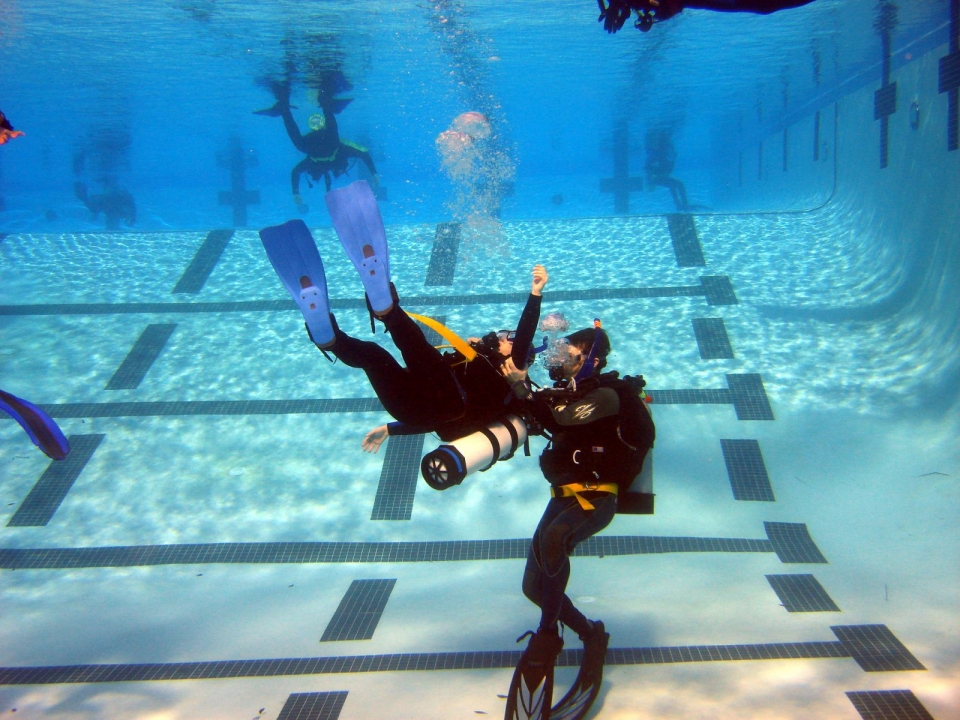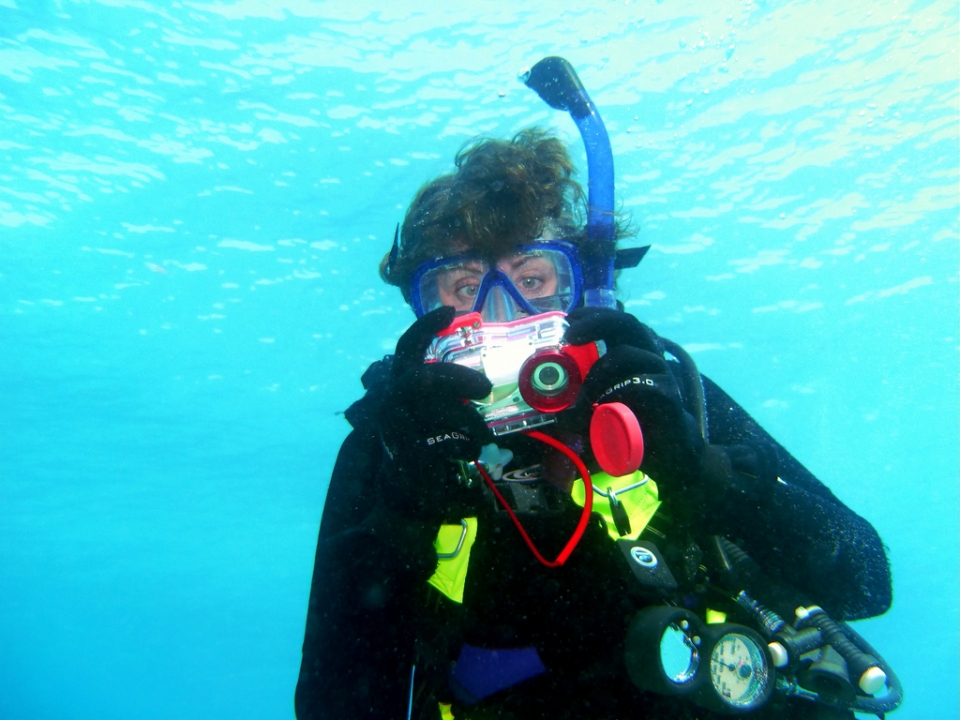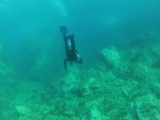P.A.D.I. stands for the Professional Association of Diving Instructors . Since its founding in 1966, PADI has become the largest association made up of members of the world of recreational diving and diving instructors.

This organization was founded with the aim of unifying under a universal career, the diving qualifications that have existed until now.
That is why you have probably heard of this Association when searching for information about courses, immersions or first-time diving, because the companies that offer these activities teach internationally recognized courses governed by PADI regulations
Below we explain what each of the courses consists of and the skills that its completion grants.
There are many courses taught under PADI regulations in companies related to water sports, diving schools or at PADI itself. You can see a list here.
These courses are distinguished by their purpose, there are courses at the diver level, for those who have diving as a hobby, either at a beginner level or at more advanced levels. There are also professional level courses, for those who have done or want to make diving their livelihood. For the general public, there are technical courses, and even online courses to "learn to dive" without leaving home.

Any of the PADI qualifications you obtain will serve you wherever you go, because they arerecognized and accepted internationally. The main advantage of these titles is the universality in the homologation of the title, very useful for any adventurer.
These courses are a perfect way to acquire dives and obtain a qualification as an instructor. Furthermore, in many countries, these courses serve to validate free-choice university credits.
There are many recreational diving courses, we explain the most important ones.
- Open Water Diver: the most popular. For beginners who have decided to start in the world of diving to discover new adventures. You will learn to dive, starting with breathing underwater. In this course, a minimum of 5 dives are carried out in the pool and 4 in the waters of the area where you are practicing the course. You can see different options in this link.

This course is basic, in it you will learn safety rules, how to plan a dive and you will learn about diving equipment, its assembly and use.
This is done in 3 main phases:
1) Theory on basic diving principles (which can be online or in classrooms)
2) Immersions in confined waters, such as swimming pools, for example
3) Open water dives

To carry out this course, the basic diving equipment is used, a diving and standard accessories.
The minimum age to take it is 10 years (there is a Junior Open Water Diver category).
- Advanced Open Water Diver: Despite its name, this course does not require you to be advanced to do it, as you can access it directly from the Open Water Diver course. It is a higher step in which you will reinforce your skills and through which you will be able to gain confidence. Find a option listing here.

- Rescue Diver: course to learn rescue techniques, discover how to prevent risks and how to deal with them if they occur. It is a course that combines challenge and reward, because it is very comforting to participate in this adventure and feel fulfilled at the same time. With this course you will be prepared to face any challenge.
It is necessary to have prior knowledge of first aid to participate in this course.
- Specialty courses: they are thematic modules that address different diving techniques.
There are many specialty diving courses that exist but, among the most popular, we can highlight the enriched air diving courses (where you will learn how to use and get the most out of Nitrox), dry suit diving, diving in sunken ships (at Sometimes you will even find cars or small planes, this course is very interesting due to its exploration nature), night diving (where you will learn to plan routes and everything you need to do a dive at night), diving in frozen areas (dive under plates of ice) or course of underwater photography.

- Master Scuba Diver: with this course you will be part of "the best of the best" in the field of recreational diving. It is the highest category of the non-professional level, through which it is certified that you have acquired knowledge and diving practice in various environments.
To access this course you must have previously taken the Open Water Diver course, the PADI Rescue Diver, be over 12 years old, have taken at least 5 specialty courses and have a minimum of 50 dives.
For those passionate about this sport, diving can become a way of life. When you go from practicing it out of a simple hobby to wanting to transmit your knowledge to others or use your underwater skills to carry out certain jobs, you are ready to sign up for a PADI professional course.

A great idea to earn a living doing what you like most.
- PADI Divemaster: it is the first step you must take to turn diving into your professional career. It is the first professional form of recreational diving. With this course you will expand your knowledge and improve your technique, in addition to acquiring leadership skills. That is, it addresses the theoretical and practical part of diving and, on the other hand, the instructor part.
With the PADI Divemaster certification you will be able to supervise dives, assist an instructor while they are teaching training for any diving course, direct certain courses and programs (such as Discover Snorkeling) or guide Open Water Diver students on their dives, among other skills. .
This qualification is necessary to acquire the PADI Assistant Instructor and PADI Open Water Scuba Instructor certificates. You can dry suit diving, diving in sunken ships (at Sometimes you will even find cars or small planes, this course is very interesting due to its exploration nature), night diving (where you will learn to plan routes and everything you need to do a dive at night), diving in frozen areas (dive under plates of ice) or course of underwater photography.

- Master Scuba Diver: with this course you will be part of "the best of the best" in the field of recreational diving. It is the highest category of the non-professional level, through which it is certified that you have acquired knowledge and diving practice in various environments.
To access this course you must have previously taken the Open Water Diver course, the PADI Rescue Diver, be over 12 years old, have taken at least 5 specialty courses and have a minimum of 50 dives.
For those passionate about this sport, diving can become a way of life. When you go from practicing it out of a simple hobby to wanting to transmit your knowledge to others or use your underwater skills to carry out certain jobs, you are ready to sign up for a PADI professional course.

A great idea to earn a living doing what you like most.
- PADI Divemaster: it is the first step you must take to turn diving into your professional career. It is the first professional form of recreational diving. With this course you will expand your knowledge and improve your technique, in addition to acquiring leadership skills. That is, it addresses the theoretical and practical part of diving and, on the other hand, the instructor part.
With the PADI Divemaster certification you will be able to supervise dives, assist an instructor while they are teaching training for any diving course, direct certain courses and programs (such as Discover Snorkeling) or guide Open Water Diver students on their dives, among other skills. .
This qualification is necessary to acquire the PADI Assistant Instructor and PADI Open Water Scuba Instructor certificates. You can












